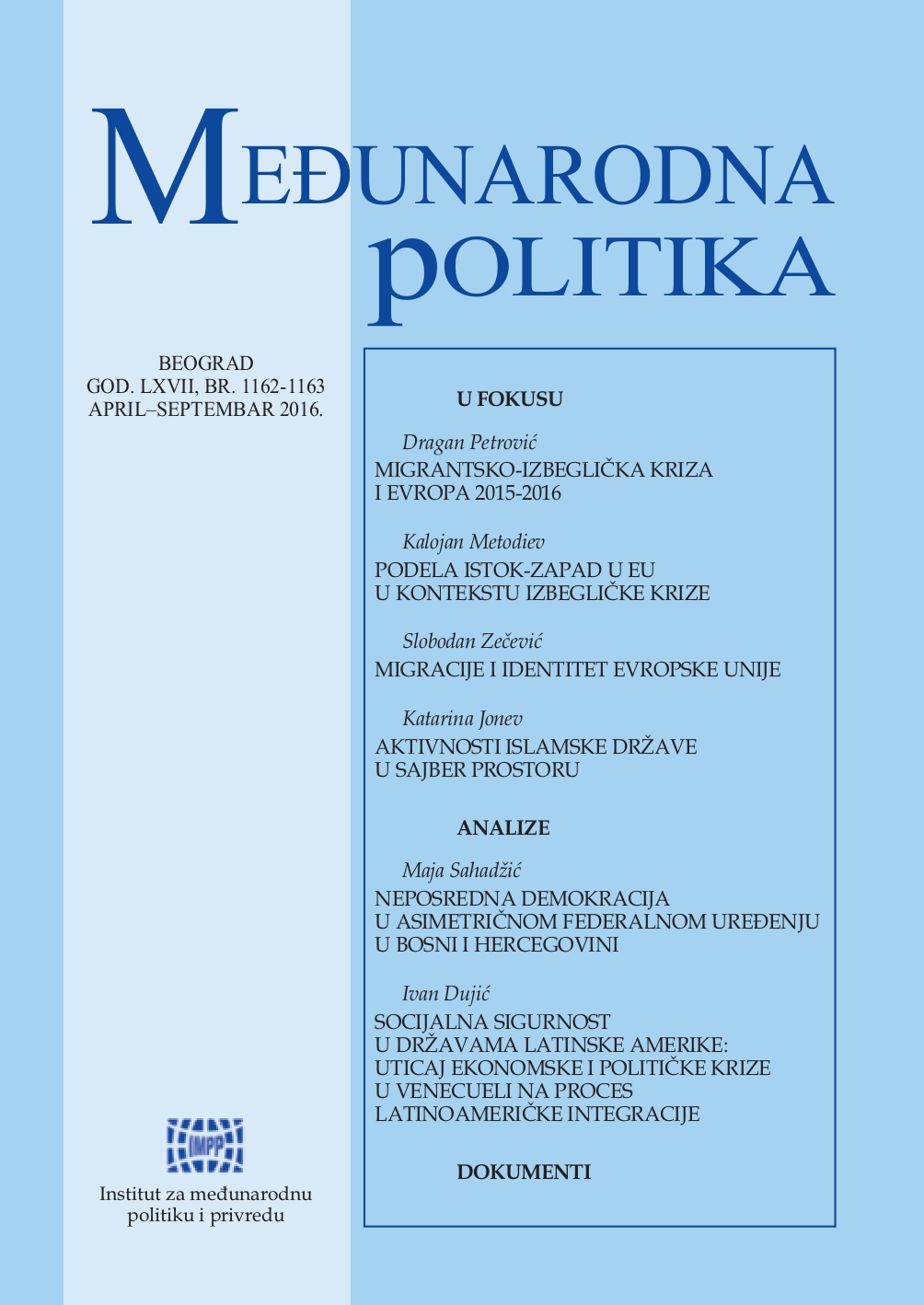Evropska služba za spolјne poslove:
sporedan akter u evropskoj diplomatiji
The European external action service: secondary player in European diplomacy
Author(s): Miloš PetrovićSubject(s): EU-Approach / EU-Accession / EU-Development, Geopolitics
Published by: Институт за међународну политику и привреду
Keywords: EEAS; Eu delegations; member-states; competences; autonomy; High representative; council; foreign policy; institutions; positioning
Summary/Abstract: The European External Action Service (EEAS) can articulate EU global positions more clearly. The discrepancy between an institutional contribution in policy creation and its insufficiently regulated status undermines the EEAS autonomy, as a result of the Lisbon Treaty and interventions by other institutions. Besides the framework of the Common Foreign and Security Policy (CFSP), EEAS activities are bound by the intergovernmental decision-making in other segments of external relations. Divergent interests and unfavorable institutional legacy have their outcome in overlapping and non-conferral of tasks in the domain of foreign relations. It is necessary to research the challenges which hinder full operationality of EEAS and analyse its development through institutional argumentation. Conceived as an auxiliary body, EEAS has nonetheless started to affect the institutional context, which raises the issue of its institutional identity. EEAS can contribute to CFSP by facilitating the process of reaching common positions, and by assuming additional competences at a later stage. With less resistance and more efficient reaching of common positions, conditions would be met to improve performances of EEAS in the domain of coordination, and its institutional positioning would be facilitated.
Journal: Међународнa пoлитика
- Issue Year: 67/2016
- Issue No: 1163
- Page Range: 104-115
- Page Count: 12
- Language: Serbian

